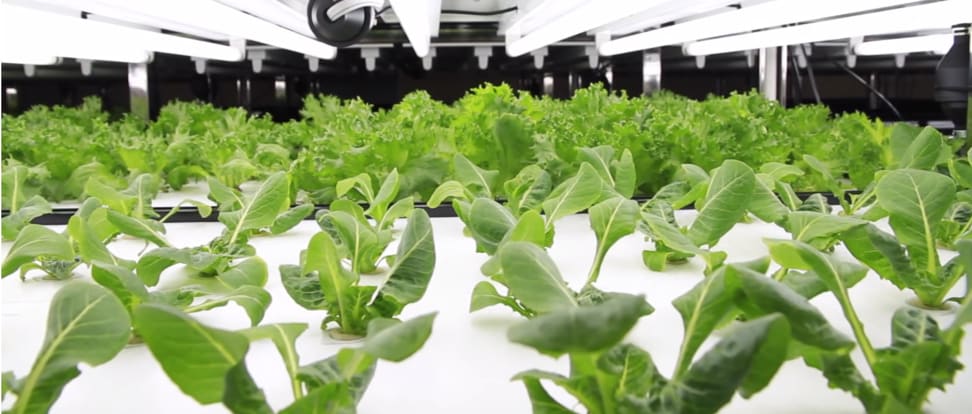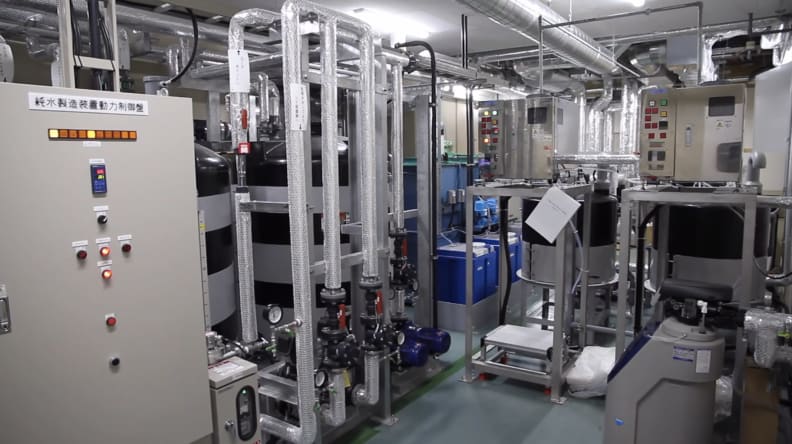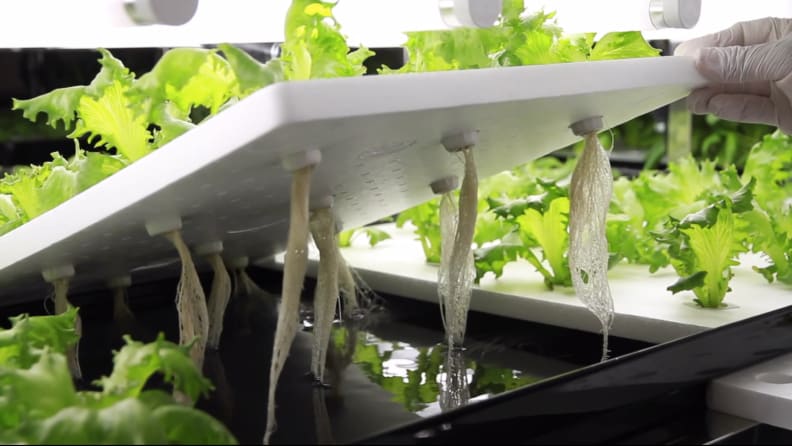Better Than Organic: Why Lab-Grown Produce Is the Future
Let us discuss the future of lettuce.
 Credit:
Credit:
Products are chosen independently by our editors. Purchases made through our links may earn us a commission.
Here's a thought: Some 40 percent of the world's food production takes place within 12 miles of a city. That's not surprising, considering that more and more people are moving into urban centers, but it does raise some concerns.
One big issue is cross-contamination between farm and city environments. Each ecosystem has pollutants that can wreak havoc on the other. Still, you can't ignore the advantages of growing food close to a dense population center. Anyone have any solutions?
As it turns out, Toshiba does.

Toshiba has the advantage of already producing most the technology used in the clean room facility. [Credit: Toshiba]
The tech conglomerate has retrofitted one of its floppy disk factories in Yokosuka, Japan, into a clean room produce farm. The indoor facility uses fluorescent lights and hydroponic techniques to grow leafy greens like lettuce and spinach. A company press release details how the operation is a completely closed loop, meaning everything is handled in a nearly aseptic environment, from seeding to packaging.
But why repurpose an expensive electronics factory to grow lettuce when you could just do that outside? Well, there are two really good reasons, and both have to do with the aseptic nature of Toshiba's farm.

A shot of the plants in "action". [Credit: Toshiba]
First of all, you don't need to use pesticides and other hazardous chemicals. That means Toshiba's lettuce comes out of the "ground" entirely free of man-made contaminants, and doesn't require washing. In fact, washing these veggies in your sink would probably make them dirtier.
It's a particularly smart move to start off growing lettuce and spinach, since both appear on the USDA's Dirty Dozen list—a group of produce items that have tested positive for at least 47 different chemicals.
![Every aspect of the facility is monitored. [Credit: Toshiba]](https://reviewed-com-res.cloudinary.com/image/fetch/s--Ed8z4E8l--/b_white,c_limit,cs_srgb,f_auto,fl_progressive.strip_profile,g_center,q_auto,w_792/https://reviewed-production.s3.amazonaws.com/attachment/56db82aaec444222/Toshiba-control-1.jpg)
Every aspect of the facility is monitored. [Credit: Toshiba]
The second major benefit is shelf life—something leafy greens typically have in short supply. They wilt, get mushy, and become unpresentable pretty quickly. Aside from being less tasty, wilted vegetables can also have less nutritional value since certain vital nutrients—like vitamin C—are volatile and fall apart in wilting vegetables.
Microorganisms are the primary culprit in vegetable rot, and since Toshiba's clean rooms are free of foreign contaminants, they're also free of those creepy crawlies.
Toshiba is banking the idea that consumers will want vegetables that are chemical-free, last longer, and are more nutritious. The factory is estimated to produce approximately 3.9 million pounds of produce and generate 2.5 million dollars per year. If it proves a success, who knows—you could soon see a vertical farm sprout in a city near you.
For more detail on how the Toshiba farm will actually work, check out this promo video:
Hero image: Toshiba
